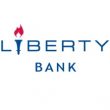Fed White Paper Explores PayPerks’ Prepaid Benefits Card Literacy Program, Effects (Oct. 24, 2013)
The Federal Reserve Bank of Philadelphia’s Payment Cards Center this week unveiled a white paper analyzing the effects of sweepstakes-based financial literacy programs New York-based PayPerks developed to help educate unbanked and underbanked consumers using prepaid government benefits cards. The 26-page paper, “Driving Positive Behavior Change Through Education and Motivation: Summary of a PayPerks Workshop,” documents the evolution of a program the U.S. Treasury Dept. launched in April of this year with its Direct Express MasterCard prepaid benefits card, concluding that the program has been positively received. The paper referenced Paybefore’s blog last June touting the program’s early results, including 50,000 Direct Express cardholders enrolling and completing 300,000 education modules.
The paper’s author, Susan Herbst-Murphy, describes the government’s decision to launch a pilot of PayPerks’ programs, beginning with a May 2012 workshop at the Fed’s Payment Cards Center with PayPerks co-founders Arlyn Davich and Jake Peters, where plans began to take shape for Treasury and the Social Security Administration to launch a program for Direct Express cardholders to help cardholders understand prepaid card benefits and overcome certain problems. The program emphasized tutorials on how to get cash back when making POS purchases, set up recurring payments and use cards to shop on the Internet.
PayPerks’ program, which won the top prize in the Core Innovators Mega Challenge at the Underbanked Financial Services forum earlier this year, enables participants to earn points by taking short, self-directed tutorials on prepaid card use, with those points becoming chances to win cash prizes in monthly sweepstakes drawings. Using humor and other creative approaches, PayPerks’ tutorials help cardholders understand prepaid cards’ benefits and how to use them most effectively, according to Herbst-Murphy. “Government and employers were (and still are) looking to prepaid cards as a bridge to the unbanked for electronic funds distribution,” Herbst-Murphy noted in the paper, adding that “customization is essential as PayPerks expands into different programs and sectors.” PayPerks is working with several other program managers in the prepaid market that are yet to be announced publicly, the author wrote, adding that gamification is beginning to get notice from others. “The Payment Cards Center will watch developments in this area with interest,” she wrote.











































